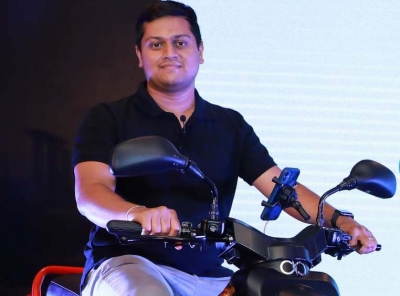
<br>Queried about the impact of domestic supplies of lithium on the production cost of EVs, Narayanan in an interview told IANS: “My expectation is that we can see cell prices 20-30 per cent due to these, which would lead to vehicle cost reduction of 8-15 per cent.”
“I am not an expert on the mining industry, but from what I understand it will take 3 years minimum for us to see output,” he added.
Here are excerpts from the interview:
IANS: On the lithium reserves found in India.
Narayanan: It is great news for our country. However, there’s more work to be done. The reserves are in G3 stage and further exploration will be needed to qualify the find with a high-level of confidence.
IANS: What does the finding of lithium reserves mean for the EV industry players? Will it result in reduction in vehicle prices?
Narayanan: Definitely it will be good for the industry to have local cell manufacturing and local supply chain feeding the cell manufacturing. Both of these will result in reduction in cost of the Li-Ion batteries. My expectation is that we can see cell prices 20-30 per cent due to these, which would lead to vehicle cost reduction of 8-15 per cent.
IANS: With domestic supplies of lithium will EV players will go for backward integration? What are your views for your group on this point?
Narayanan: It makes sense for EV players to backward integrate up to cell manufacturing, but not necessarily up to mining. Mining is best left to people who know the industry.
IANS: On the view that India should skip the lithium battery and go the next step? If yes, why and if no, why?
Narayanan: At scale, my belief is that today there is no better option than lithium batteries. While there is talk of other battery technologies (like sodium ion, metal air), and fuel cell technologies, all these are not yet proven at scale — whereas lithium is. We cannot afford to wait for these technologies to mature — in the meantime we must progress towards clean energy.
One more way to think about it is that since lithium batteries can generate more immediate returns as against new technologies that may involve years of R&D, the returns from our investments in lithium today can help fund our R&D into new generation energy technologies.
Finally, while these other technologies are still evolving, lithium batteries are getting better day-by-day. By the time these technologies mature for scale production, it’s possible lithium batteries will remain a better option in terms of scalability, cost, safety, performance, etc. In conclusion — we should not skip investing in lithium batteries.
IANS: On the value and volume of lithium battery/cell being imported by India.
Narayanan: As of FY ’22, India imported $1.8 billion of lithium batteries and cells. As for FY’23, up until Q3’23, we had already exceeded this number so we may end the year with about $2.4 billion worth of imports.
IANS: If lithium is mined and made available in the country, will there be any reduction in the global prices? If yes, to what extent? What is the current rate?
Narayanan: There should definitely be a reduction in domestic prices. Global prices are harder to predict since it will depend on the global supply/demand scenario. In domestic, as mentioned I would expect a 20-30 per cent reduction in cell prices. Today cell prices in rupee terms can vary from Rs 9,000 to Rs 20,000 per kWh for NMC and LFP cells depending on the quality.
IANS: Will the domestic lithium source result in the growth of battery making units in India?
Narayanan: Yes certainly. As the domestic EV industry grows (and with the government push to only buy domestic batteries), battery making units in the country will certainly grow. But once the local cell manufacturing at scale and local mining and refinement capacities are established, I predict India can become a strong exporter of lithium batteries.
(Venkatachari Jagannathan can be reached at v.jagannathan@ians.in)
–IANS<br>vj/ksk/











